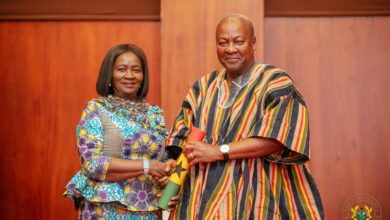
The Minister-Designate for Trade, Agribusiness, and Industry, Elizabeth Ofosu-Adjare, has outlined an ambitious plan to address the challenges facing Ghana’s flagship industrialization initiative, the One District, One Factory (1D1F) program. She has proposed the adoption of a 24-hour economy to boost productivity and resolve the program’s long-standing hurdles.
During her vetting by Parliament’s Appointments Committee, Ofosu-Adjare acknowledged the notable achievements of the 1D1F initiative in driving industrialization and job creation. However, she identified key challenges that continue to hinder its full potential.
Top among the issues she highlighted were raw material shortages, particularly for agro-processing factories, which have left many operations underutilized. She also noted the difficulty of accessing capital, compounded by fluctuating market conditions and high-interest rates, which have significantly widened the funding gap for many businesses under the initiative.
Although the government had introduced subsidized loans with capped interest rates of 20% to support businesses, the reality of surging interest rates—reaching as high as 55%—left enterprises grappling with a 15% funding shortfall. To make matters worse, the government failed to honor its pledge of covering 10% of the subsidized interest rate, further worsening the financial strain on businesses.
To tackle these issues, Ofosu-Adjare proposed the introduction of a 24-hour economy, which she believes will enable factories to maximize productivity by extending operational hours, optimizing supply chains, and creating a more resilient industrial base.
“The solution to 1D1F lies in a 24-hour economy. By keeping factories operational around the clock, we can address inefficiencies, reduce bottlenecks, and improve supply chain reliability,” she emphasized.
While commending the initiative for its transformative potential, Ofosu-Adjare stressed the urgency of addressing these structural challenges to ensure the program fulfills its vision of creating sustainable economic opportunities across all districts.
Her proposal has sparked interest among stakeholders, with many anticipating bold reforms under her leadership to restore the momentum of the 1D1F program and revitalize Ghana’s industrial sector.
Story by: Mercy Addai Turkson




